The Post-Congress 2015 newsletter is now available for members to download.

Adobe Acrobat Reader is required to open the newsletter. If you do not have Adobe Acrobat Reader it can be downloaded from http://get.adobe.com/uk/reader/.
The Post-Congress 2015 newsletter is now available for members to download.

Adobe Acrobat Reader is required to open the newsletter. If you do not have Adobe Acrobat Reader it can be downloaded from http://get.adobe.com/uk/reader/.
The SSTA wishes to gauge members’ opinions on the implementation of the Professional Update Process. Emails are being sent out to members today with links to the survey. Members who have not received an email should contact the SSTA office with details of their email address.
The information we collect will provide a snapshot of how the process is being implemented and will be helpful in our discussions with the GTCS and local authorities.
The link in the email is uniquely tied to this survey and your email address and should only be used by you .If you are having difficulties getting the link to work you should try the following:
The following represent the most commonly asked questions relating to the 35 hour working week and the contractual matters associated with Working Time Agreements.
Q1. How are teachers’ contractual duties determined?
They are shown in the SNCT Handbook Part 2: Section 2 – Main Duties
Q2. Can the duties be varied at school level e.g. by the insertion of such a variation in a school Working Time Agreement (WTA)?
No.
Q3. Can the duties be amended at District (authority) level?
Only if the SNCT approves the amendment.
Q4. How much time is contractually available for the duties?
35 hours in any full teaching week. If the week contains a teacher holiday the time available for contractual duties during that week is reduced on a pro-rata basis. Teacher holidays are best allowed for by regarding the teacher as having worked a normal timetable on the holiday.
Q5. Some schools seem to use a 38 week year and others a 39. Which is correct?
The difference between the two are the five in-service days. It is probably better to assume a 38 week year and hence contracted time would be 1330 hours per year. The five in-service days then do not count towards the 1330 hours. There should still be discussion as to the format and use of the in-service days.
Q6. How are the 35 hours distributed?
By the drawing up of an agreement at school level following negotiation (not simply “consultation”) within the School Negotiating Committee (SNC). A school calendar is a very useful addition to the formal agreement.
Q7. How is the staff’s consent obtained?
Either by a free vote of staff (best undertaken by the use of a secret ballot) or by the teachers’ side indicating their consent on behalf of the teaching staff at a meeting of the SNC.
Q8. What happens if an agreement can’t be reached?
The matter is referred to the Local Negotiating Committee for Teachers (LNCT). If the LNCT has previously produced a framework agreement, a “failure to agree” situation is less likely to occur.
Q9. Can the headteacher impose an agreement?
No.
Q10. Can a WTA be established by the headteacher asking staff to “approve last year’s agreement unless I hear from you”?
No. The SNC must meet in order to ratify any agreement.
Q11. Does the SSTA see the necessity for members to count the 35 hours to the minute every week?
Most definitely not. It should not be and is not necessary in most schools.
Q12. When might such a situation arise?
This approach may require to be adopted if a school’s senior management adopts any practice which is contrary to the terms of national agreements or where the professionalism of members is being attacked in any way. It is worth noting that schools which have successful Staff Liaison Committees have fewer problems in this area. It is useful if members seek further advice from the General Secretary if they are contemplating such action.
Q13. What should happen if it is recognised that a school’s WTA is not able to meet the demands being placed on teacher’s time?
The SNC should reconvene. (An SNC should in any event meet regularly to review matters.) The WTA may be amended but only by the express agreement of staff. It is valuable, of course, that any WTA contains an element of “flexibility time” to deal with unexpected contingencies. Members are entitled to view the school calendar for the current term as a settled issue.
Q14. Are there any contractual duties for unpromoted teachers which are not shown in the school WTA?
No. If a teacher carries out any work relating to a matter not covered in the WTA, by definition that work is non-contractual and hence is voluntary. All main grade duties (as defined in the SNCT Handbook Part 2: Section 2 – Main Duties) must be allowed for in the school WTA.
Q15. Are there any contractual duties for Principal Teachers not shown in the school WTA?
No. See the answer above.
Q16. What happens if a Principal Teacher does not have enough time for all management duties? Do these duties remain?
No. “Duties” exist only insofar as there is time available to complete them. If the time is not available, the low priority work is no longer contractual. For this reason it is all the more important that the demands placed on Principal Teachers (and unpromoted staff) are realistic and capable of being completed within the 35 hour week.
Q17. It has been suggested that teachers on sick leave (especially Principal Teachers) still have their contractual duties to complete on return to school. Is this true?
This is absolute nonsense. The work, including management tasks, should have been completed by someone else during the teacher’s absence.
Q18. There is much reference to Principal Teachers’ “Management Time”. Does this time actually exist?
It must be stated clearly that all teachers can be asked to teach classes up to the limit of 22.5 hours imposed by national agreement. In the past it has generally been that Principal Teachers are given time for “management” duties by having a reduced timetabled commitment. There is really no other mechanism to provide such time.
Q19. Can Principal Teachers be given formal “management time”?
This might happen but is exceptionally unlikely for those Principal Teachers who have anything approaching a normal timetabled commitment. If “management time” is to exist, it must like all other time be accounted for in the school WTA. It is easily seen that Principal Teachers cannot undertake normal class teaching, have the usual preparation and correction time and for there to be time remaining to permit a formal allowance of “management time”. Many local agreements on cover make mention of “management time”. Hence many school based statements on the application of the cover policy will make provision to protect “management time” from class cover calls.
Q20. Is it possible for there to be a different WTA for Principal Teachers?
It is common for the time required for “Principal Teachers’ Meetings” to be shown as a discrete item on a WTA. Unpromoted staff would have this time accounted for in a different manner. It is, however, unusual to write a separate WTA for Principal Teachers.
Q21. What happens when an individual teacher finds that his/her workload cannot be completed within the 35 hours?
If additional time needed is significant, the teacher should see the headteacher to permit discussion of necessary arrangements to be made to solve the problem. This might mean that duties are prioritised to the extent that some are not completed by the teacher.
Q22. What causes such situations?
These problems commonly arise if
a). an individual teacher has a large number of pupil reports to complete (perhaps being the sole teacher of a subject);
b). a teacher has a significantly heavy upper school commitment in a subject which uses a large amount of time for internal SQA work;
c). there have been heavy demands on a teacher to provide cover for absent teachers.
Q23. How are the contractual obligations of part-time teachers defined?
The general contractual obligation is on a pro-rata basis. However, the duties must be capable of being performed on days on which the part time teacher is contractually committed to attend (with the exception of Parents’ Evenings). It should be noted that many jobshare agreements require both jobshare partners to attend on all in-service days. Additional duties shown on a WTA must be carried out by part-time staff at times end on to their working blocks. This may mean part-time staff undertaking their contracted duties at different times from full-time staff.
Q24. How can I obtain further advice?
Your school representative may assist but only in terms of providing or explaining the school WTA; (this person may, in fact, be our negotiator rather than the school representative).
Any member requiring advice as to the interpretation of a WTA should contact the General Secretary.
School Rep Bulletin – Working Time Agreements
1. Introduction
Since 2006 the pupil contact time for secondary teachers in Scotland has been limited to a maximum of 22.5 hours per week. Teachers are contracted to work for 35 hours per week. Part 2 Section 3.9 the SNCT handbook states that:
“An allowance of no less than one third of the teacher’s actual class contact commitment is provided for preparation and correction. The use of remaining time will be subject to agreement at school level within LNCT guidelines, based on the Code of Practice on Working Time Arrangements (see Appendix 2.76).”
SNCT Part 2: appendix 2.7 Code of Practice on Working Time Arrangements for Teachers states that:
“Each educational establishment will prepare an annual programme of activities, which require the involvement of teachers. In each school, teachers will agree the range of collective activities contributing to the wider life of the school on a collegiate basis. The use of the remaining time (that is, time beyond the combined class contact and preparation/correction allowance) will be subject to agreement at school level and will be planned to include a range of activities, such as:
- additional time for preparation and correction;
- parents meetings;
- staff meetings;
- preparation of reports, records etc;
- forward planning;
- formal assessment;
- professional review and development;
- curriculum development;
- additional supervised pupil activity; and
- Career-Long Professional Learning.
The individual and collective work of teachers should be capable of being undertaken within the 35 hour working week.”
The activities listed above should be discussed by School WTA Negotiating Committees (SNCs) and time allocated to each element in individual School Working Time Agreements (WTAs).
The time commonly called “collegiate time” for secondary teachers is 35 – (22.5 + 7.5) = 5 hours per week. Hence the annual time is 38 x 5 hours equating to 190 hours. The figure of 38 is used rather than 39 because the 39 week teaching year includes 5 in-service days.
It should be noted that “collegiate” time (sometimes mistakenly called “directed” time) is a matter for agreement at school level; it is not under the direction of the headteacher and/or the authority. To regard it as “directed” time would be to the significant disadvantage of SSTA members, teachers generally and the education service as a whole.
It is stressed that a written WTA must exist for every school, that each WTA is subject to scrutiny by the relevant LNCT and that the LNCT can require that errors and or omissions in any WTA are corrected. The following advice is therefore offered with regard to the negotiation of WTAs.
2. General
2.1 The Composition of School Negotiation Committees: SNCs must be set up on the basis that the teacher unions alone determine the composition of the teachers’ side. Membership of the teachers’ side should be in proportion to the relevant memberships of the unions operating in the school. It is strongly advised that there are no attempts made to exclude from membership of an SNC any teaching union represented on the SNCT and operating in the school even where the union represents only one member. There are potentially legal implications in this area which the Association would wish to avoid. It is the Association view that WTAs should be generally approved by the teaching staff on the basis of a secret ballot. The extent to which individual unions are represented on an SNC is not relevant in any terms of “voting”. For the avoidance of doubt, the SSTA should not accept the establishment of any SNC which includes teachers who are seen as “representatives” of non-union teachers. Similarly any attempt by management to appoint or have appointed to SNCs teachers as “Representatives” of specific grades of teachers (e.g. “Principal Teacher Representative”) should be firmly resisted and any failure by management to accept this point should be regarded as a failure to agree. The matter would then be referred to the LNCT. It is worth noting that non-union members are not represented on LNCTs or the SNCT. (An employer may make any arrangements it chooses to consult such teachers but the views presented to the employer should carry such weight as the employer determines. Such consultation would be outwith existing mechanisms.)
2.2 Chairing SNC Meetings: There would appear in certain schools to be an assumption that the headteacher should chair the SNC. This should be resisted and where it occurs, the assumption should be challenged. The position should rotate. If the headteacher has (without formal agreement) held the post for the last three years, it is suggested that the teachers’ side hold the chair for a similar period.
2.3 Submission to the LNCT: As stated above, all proposed WTAs must be submitted to the LNCT for its comment and approval. No WTA is operable until this has been done.
2.4 Monitoring the Agreement: SNCs have a duty to do more than simply draw up the WTA. Regular meetings of the SNC must be scheduled (during normal school time i.e. the 35 hours) to permit discussion of any problems identified by either management or teachers.
3. Specific WTA issues
The chief task of an SNC is to draw up the WTA. A WTA must specify the amount of time to be allocated to each of the contractual tasks identified in SNCT Part 2: appendix 2.7 (noted above). Specific advice relating to the timings is given below. It is strongly recommended that the WTA is accompanied by an agreed calendar of events. This allows precise calculation of the hours involved in each item contained within the WTA and is therefore most useful in preventing disputes as to how many hours teachers have worked.
3.1 Additional preparation and correction time: This is perhaps the most difficult issue to quantify. Variations do exist both within schools and between schools as to the amount of such time required by teachers. There can be no doubt, however, that current trends in the curriculum place significant demands on teacher time. This should be a minimum of 40 hours.
3.2 Formal assessment: As with the previous item, there can be no doubt that current initiatives result in an increase in the time required for this element. It should include allowance for all time spent on external assessment. It should be noted that this would include not simply the correction but related administrative time. Such assessments include (but are not restricted to) prelim examinations which may be used in support of Special Consideration for SQA exams, NABs, internal assessment for national qualifications and any other assessments carried out under the auspices of an external awarding body. It is clear that the amounts of time required by teachers for this task varies considerably across subjects and is highly dependent on classes taught. However, a reasonable estimate towards the higher end of the range is necessary to ensure that the concept of a WTA remains valid. It is this item which has caused the greatest difficulty for a significant number of teachers. Complaints that insufficient time has been allocated are common. The SSTA therefore recommends that a figure of at least 40 hours is now adopted.
3.3 Preparation of reports, records etc: A reasonable assessment of how long is required to prepare and complete each individual report (even where this is only one to two minutes) needs to take place. It is also worth noting that the tasks of collating, copying and sending reports to parents and carers fall into the category of “Administrative and other non-teaching duties” and are dealt with by the Statement On Teacher Professionalism in Part 2: Appendix 2.6 of the SNCT Handbook:
“Teachers will not be asked to undertake administrative and non-teaching duties which are generally undertaken by support staff.”
3.4 Curriculum development: It is generally observed that most schools can only allow up to five hours for this item. Major curriculum development work remains work for seconded teachers.
3.5 Continuous professional development: It should be noted that this is in addition to the 35 hours of CPD which all teachers are contractually committed to.
3.6 Additional supervised pupil activity: This is likely to be a statement that recognition is given to the wide range of voluntary activities undertaken by teachers.
3.7 Staff meetings: These include all meetings staff are required to attend both within and outwith the pupil day. It is generally advised that such meetings are not scheduled for intervals or lunch breaks. The DM time must therefore be counted regardless of whether the DM is held during or outwith the pupil day. Members are advised to ensure that DMs do not over-run the allocated time.
3.8 Parents’ meetings: Time needs to be set aside to allow preparation for the meetings as well as the actual meetings. This may include, for example, looking out pupil work and setting it in order, making notes on each pupil to share with parents and carers, and discussion with colleagues where classes are shared.
3.9 Flexibility factor: Many schools have included this item. It leaves perhaps 5 to 10 hours available for contingencies. If the figure arrived at significantly exceeds this amount, it can only be because certain essential items are missing from the proposed WTA. The whole WTA should be re-examined in such cases.
4. Agreements and failures to agree
As indicated above, the best method whereby teaching staff ratify a school WTA is by a secret ballot conducted and counted jointly by the staff and the management sides. If, however, the WTA is to be ratified by a decision of the School Negotiating Committee, a meeting of SSTA members should be held to indicate that a draft WTA be ratified.
Any failure to reach an agreement should be referred to the LNCT which should have mechanisms to deal with such eventualities.
The existence of a WTA and the contracted 35 hour working week does not mean that the SSTA advises its members that they should rigidly operate a 35 hour week. The Association represents members of a profession and the Association’s own research clearly indicates that teachers generally work well beyond 40 hours per week. This stance, however, can only apply where the Association remains convinced that the school management or authority negotiates and operates on the basis of the importance and contractual validity of the 35 hour week. Statements from the Joint Chairs of the SNCT relating to “collegiality” which carry the Association’s full support are of significant relevance in this regard. Where management ignore the terms of the WTA or operates in a manner totally at odds with the definition of collegiality, the Association will advise members as to appropriate action.
Further information and guidance on WTAs and related issues are always available from the General Secretary.
The purpose of circular 2015/12 is to provide clarification on:

Press Release – President Elected 27 May 15
Scotland’s only specialist union for Secondary Teachers, the Scottish Secondary Teachers’ Association, has recently selected North Ayrshire teacher Euan Duncan as its new President. Euan was elected unopposed following a call for nominations from the Association’s districts throughout Scotland.
Seamus Searson, SSTA General Secretary said “I would like to congratulate Euan on his successful election as President and wish him every success in a period where education in Scotland is at the forefront of the political agenda. Euan’s experience as a secondary school teacher and as an SSTA negotiating officer will be invaluable in the coming years”.
A graduate of Durham University, Euan holds postgraduate qualifications from the University of the West of Scotland and Strathclyde University. After an early start in banking, Euan turned to teaching and began his teaching career at Irvine Royal Academy in 1994. Shortly afterwards he took up a permanent post teaching Religious and Moral Education at Kilwinning Academy in North Ayrshire where he has been Principal Teacher of Pastoral Support for the last decade.
Since turning to teaching Euan has been a member of the SSTA, taking up the role of school representative early in his career. More recently he has been a member of SSTA Council and National Executive. For the last two years Euan has been Convener of the SSTA’s Salaries and Conditions of Service Committee and has represented the SSTA at the Scottish Negotiating Committee for Teachers. He has had a brief spell as Vice President of the Association.
Married with three school-age children, Euan aspires to have the same ambition for all his pupils as he has for his own. An active Christian and self-taught DJ, Euan enjoys making music, cycling, hiking and dinghy sailing.
Euan said, “The SSTA has a strong, effective team serving members throughout Scotland and I look forward to pursuing my work with that team. With the determination of Education Secretary Angela Constance to close the attainment gap, the immediate future is going to be a stimulating time for anyone involved in Scottish education. SSTA members continue to be concerned with deprivation and its impact on learning; there is no doubt that they want to carry on with their commitment to advancing education in Scotland. But with dwindling resources, and reserves depleted by the massive effort to bring about curricular and assessment changes, the big question will be how to sustain that advance. After all, teacher working conditions are pupil learning conditions.”
Further information from
Seamus Searson
General Secretary
0131 313 7300
You can find a note of the motions taken to Congress 2015 and the decision of Congress below.
Links to Reports and speeches from Congress 2015 can be found here.
Motion A – Remitted to Executive
Congress calls on the SQA to remove the requirement for pupils to complete “Added Value Units” and Assignments at National 4 and National 5 as these have little educational value to justify the unnecessary stress they place on pupils and their teachers. These assessments do not measure the abilities of pupils but rather the amount of support at home to assist pupils with the research and preparation, as well as the abilities of teachers to get pupils through pointless hoops.
Ruth French, Aberdeenshire
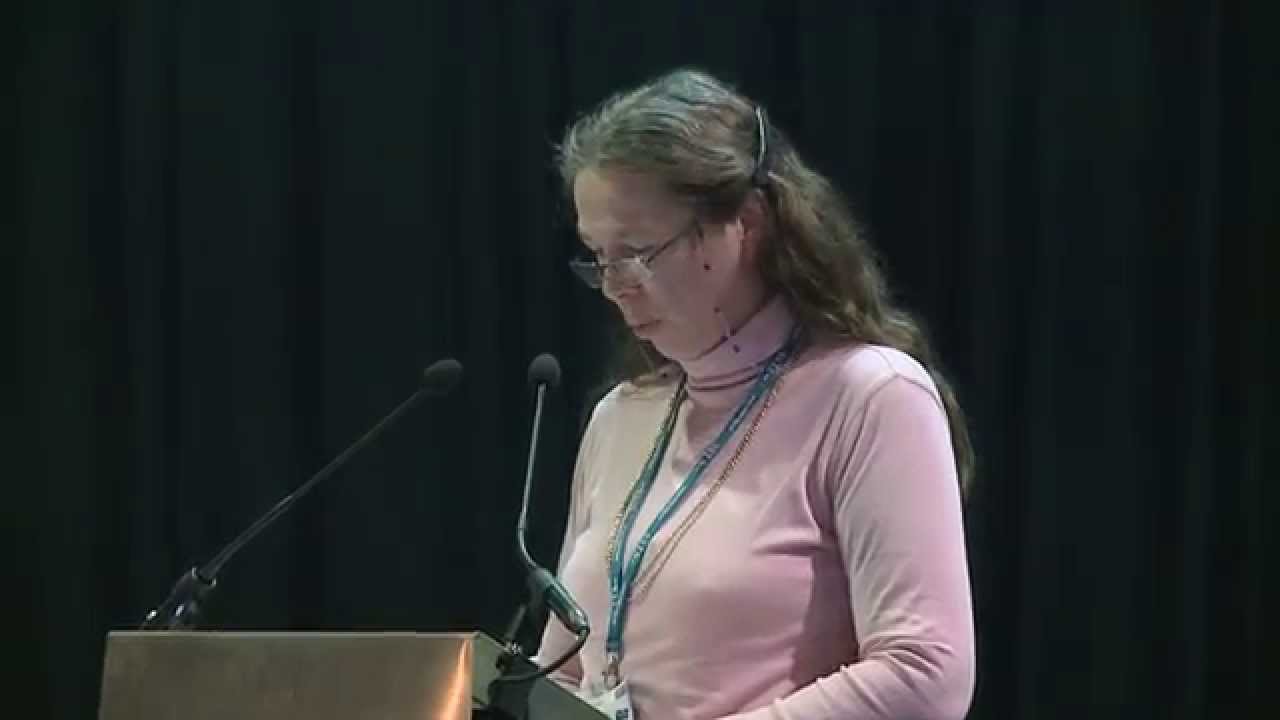
Motion B – Largely carried
Given the evidence that rising numbers of pupils are being identified as self harming – usually a physical manifestation of underlying mental health/welfare issues – Congress is concerned that assessment burdens may be contributing to pupil stress and damaging pupil welfare.
Congress therefore calls on the SQA to review its current assessment requirements with the view to radically reducing the frequency and intensity of assessments that may be required to achieve course passes.
Kevin Madill, Aberdeenshire
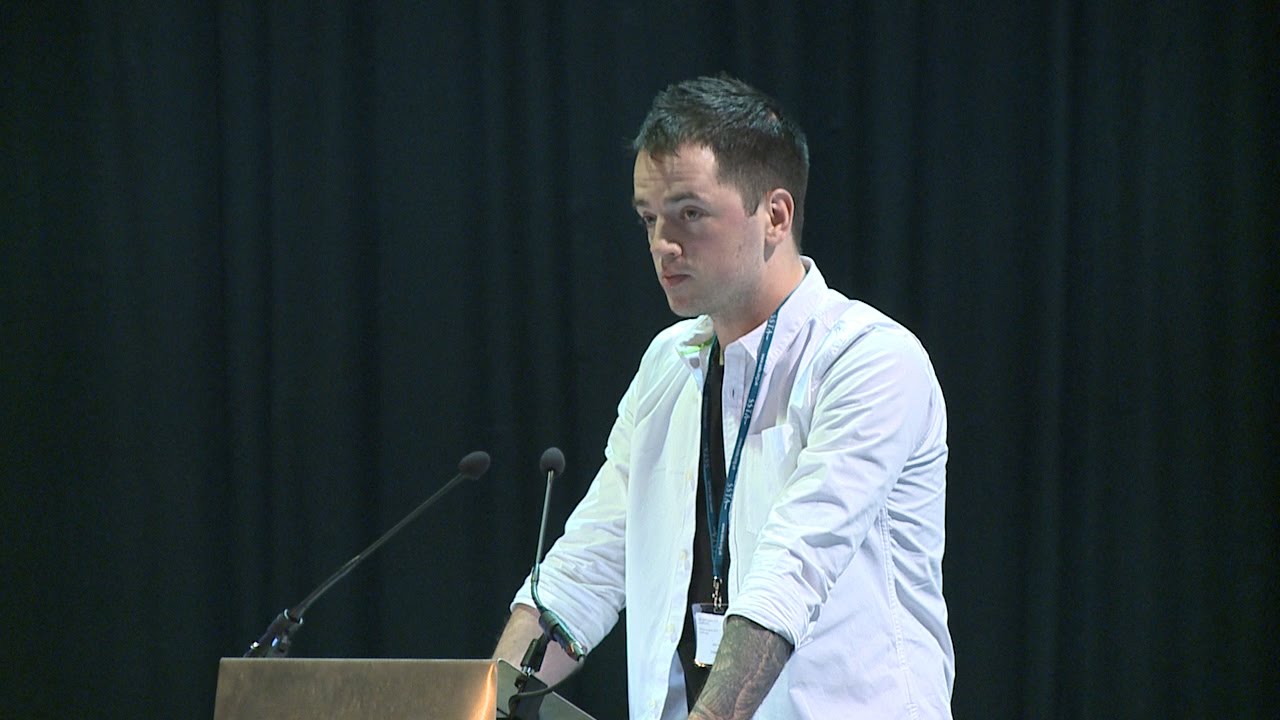
Motion C – carried unanimously
Congress expresses alarm that a survey conducted recently by this Association regarding the implementation of New Higher Qualifications revealed there was a high level of dissatisfaction with the support received from Education Scotland and the SQA. The continued lack of accessible high quality assessment materials leads us to believe that these bodies have not taken adequate steps to address the concerns raised by teachers and other stakeholders following the introduction of previous National Qualifications. Congress calls for a survey to gather members’ views on assessment processes and procedures to seek to improve the structure of and support for National Qualifications assessment.
Catherine Nicol, Ayrshire
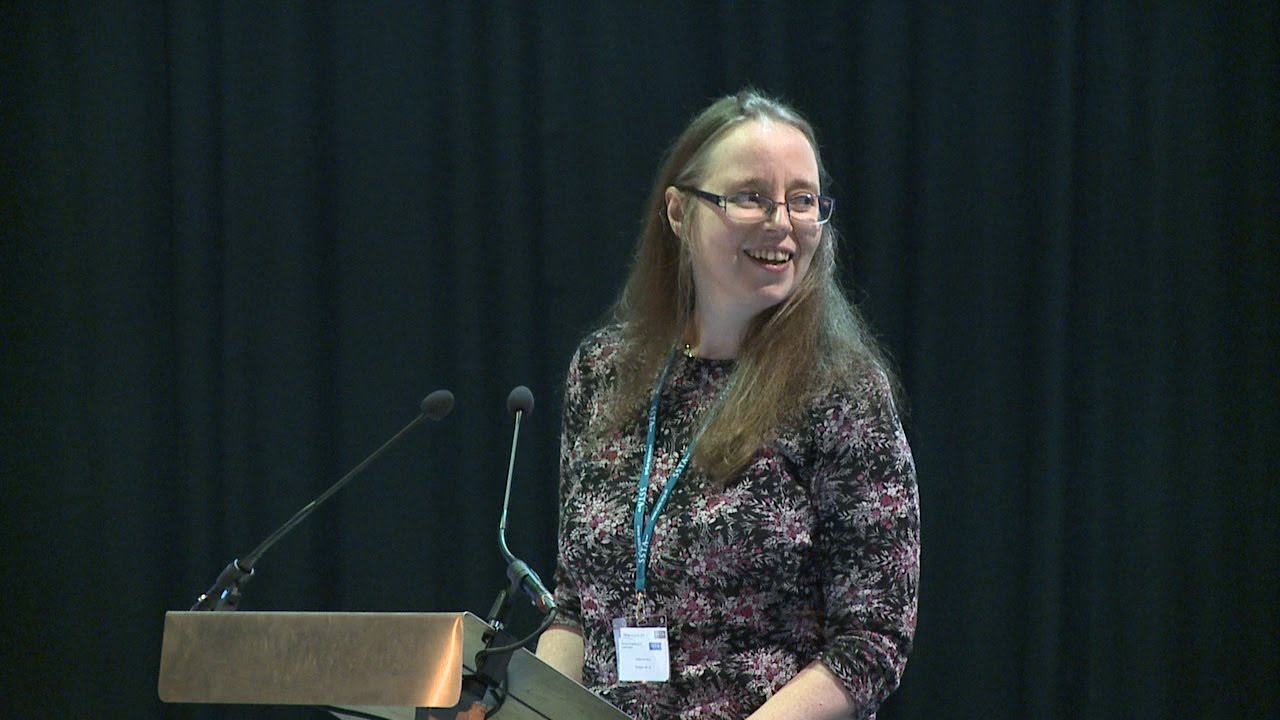
Motion D – carried unanimously
Conservative estimates place the number of young carers in Scotland as between 80000 and 120000. Recent research (August 2014) commissioned by the Scottish Youth Parliament highlights the fact that young carers face largely hidden but very significant challenges – not least financially and educationally – as the responsibilities they shoulder understandably take priority. In particular there is a need for greater co-ordinated supports – financial, emotional and educational – to be identified and organised in order to ensure that this vulnerable group have as a minimum the same life chances as their peers.
Congress instructs Executive to highlight the difficulties faced by young carers; to lobby the Scottish Parliament, Scottish Government and COSLA in relation to the needs of these young carers and to support members in taking steps which will address the difficulties they face.
Ward McCormick, Executive Committee
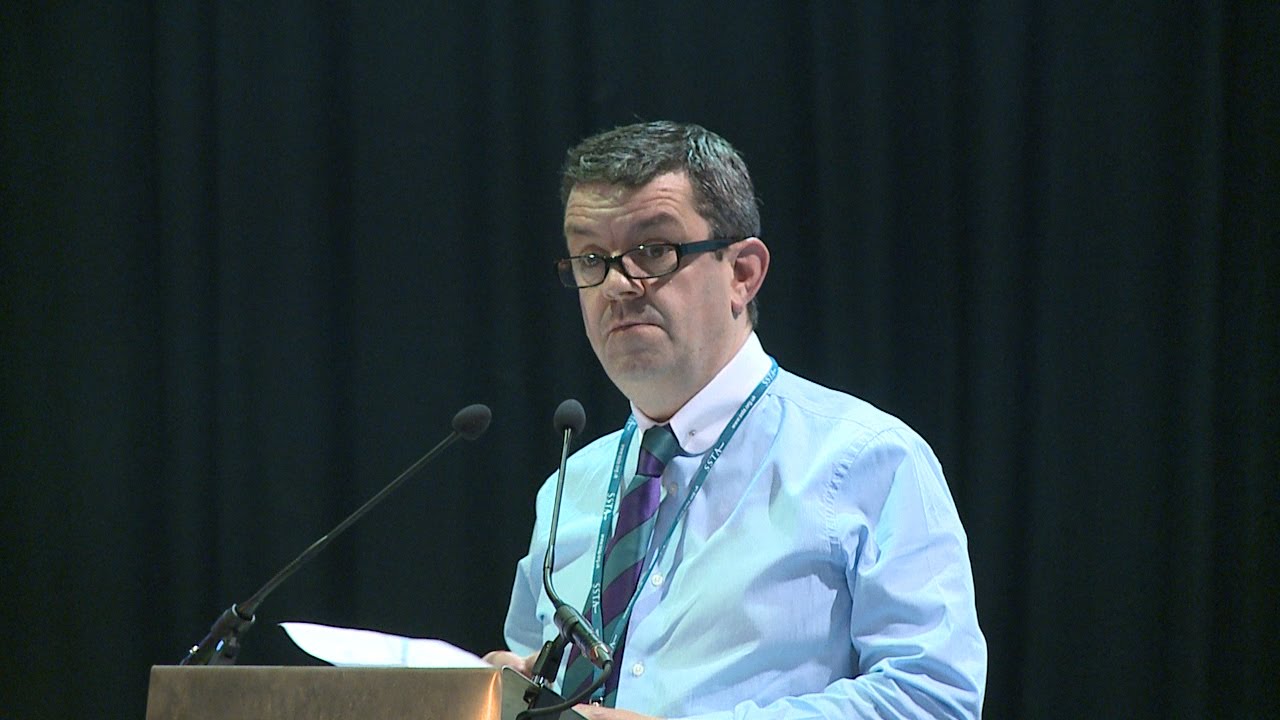
Motions E – Defeated
Congress expresses its opposition to any attempt by Education Scotland/HMIe to impose ‘no notice’ inspections on Secondary schools.
Sid Sandison, Executive Committee
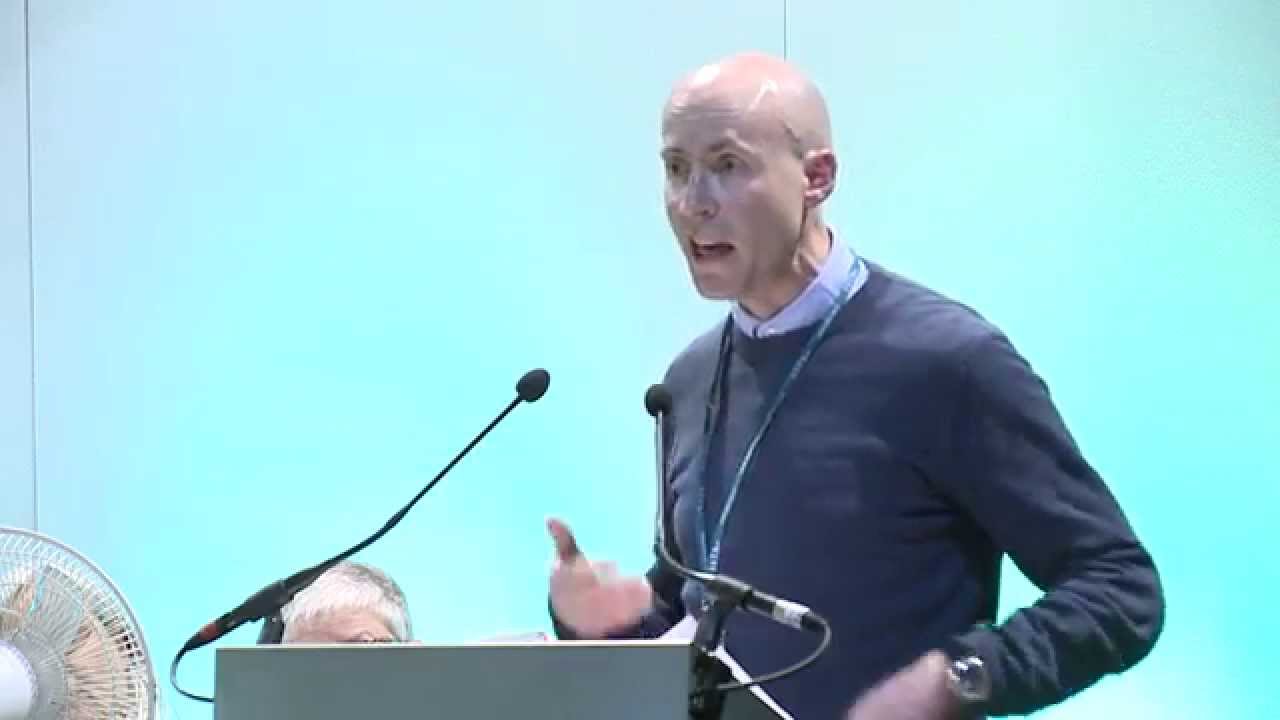
Motion F – carried unanimously
Congress wishes to see the retention of a state education sector in Scotland that is in the hands of democratically elected local authorities. This Association will oppose attempts by such local authorities to remove their education service to trusts or other arms length bodies.
Ward McCormick, Executive Committee
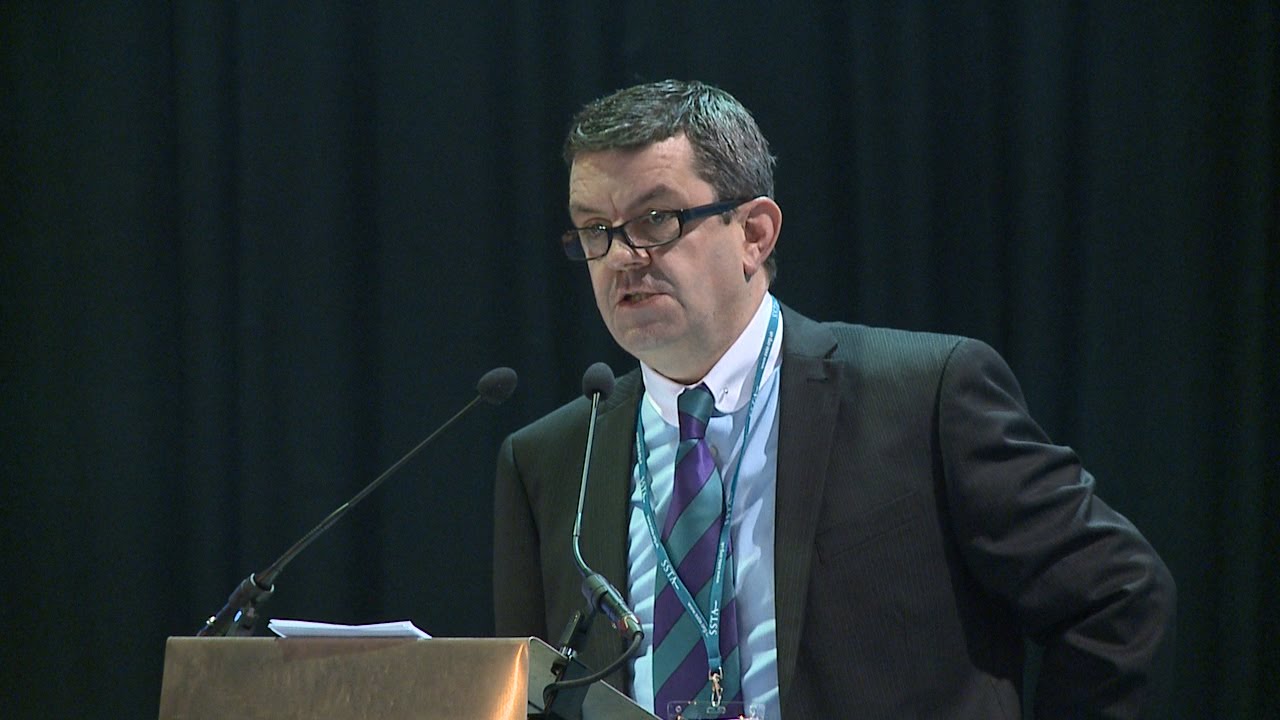
Motion G – carried unanimously
Bureaucracy is recognised as an increasing contributor to workload. This Association calls on the Scottish Government to report on the success in reducing Bureaucracy since the introduction of its document “Curriculum for Excellence Working Group on Tackling Bureaucracy”.
Paul Cochrane, Renfrew
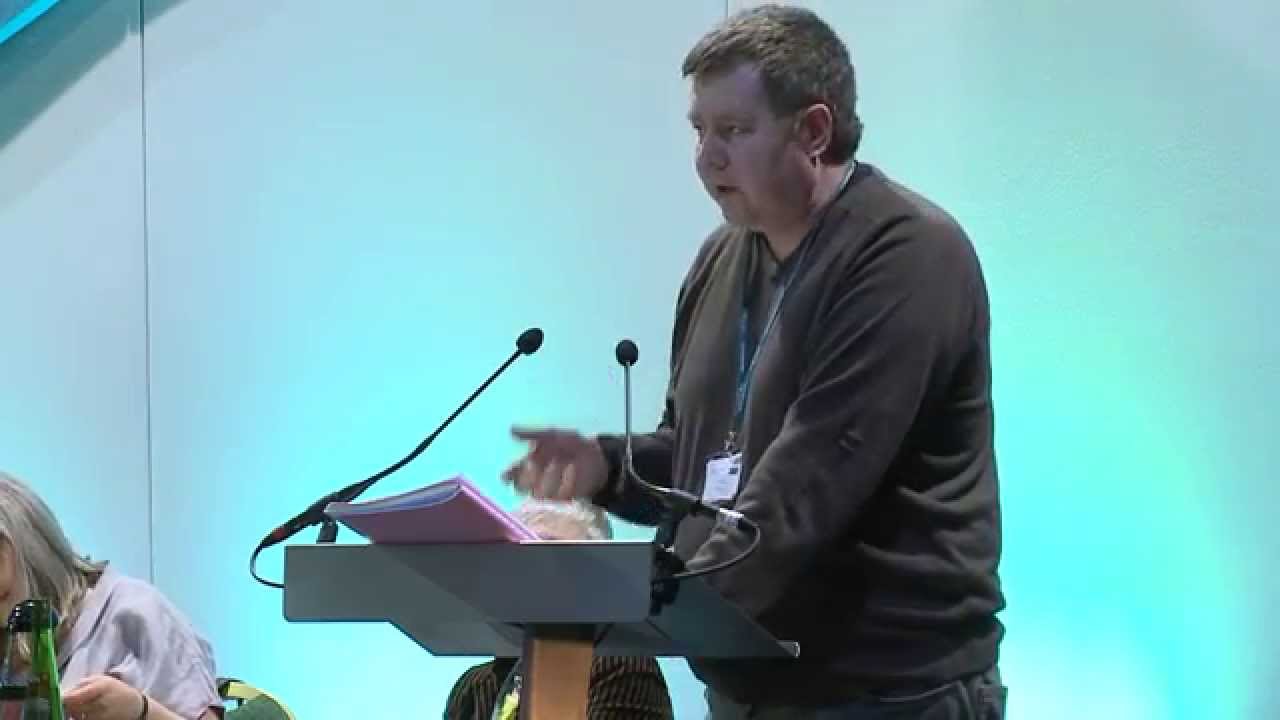
Motion H – Largely Carried
It has come to light that the payment made to teachers for participating in “Supported Study” is inconsistent across the Local Authorities of Scotland.
This Association calls on SNCT, to acknowledge that “Supported Study” is a useful tool in raising attainment, and that payment for teachers be consistent and appropriate across all Local Authorities in recognition for the time spent with the pupils and the time required for preparation.
John Guidi, Renfrew
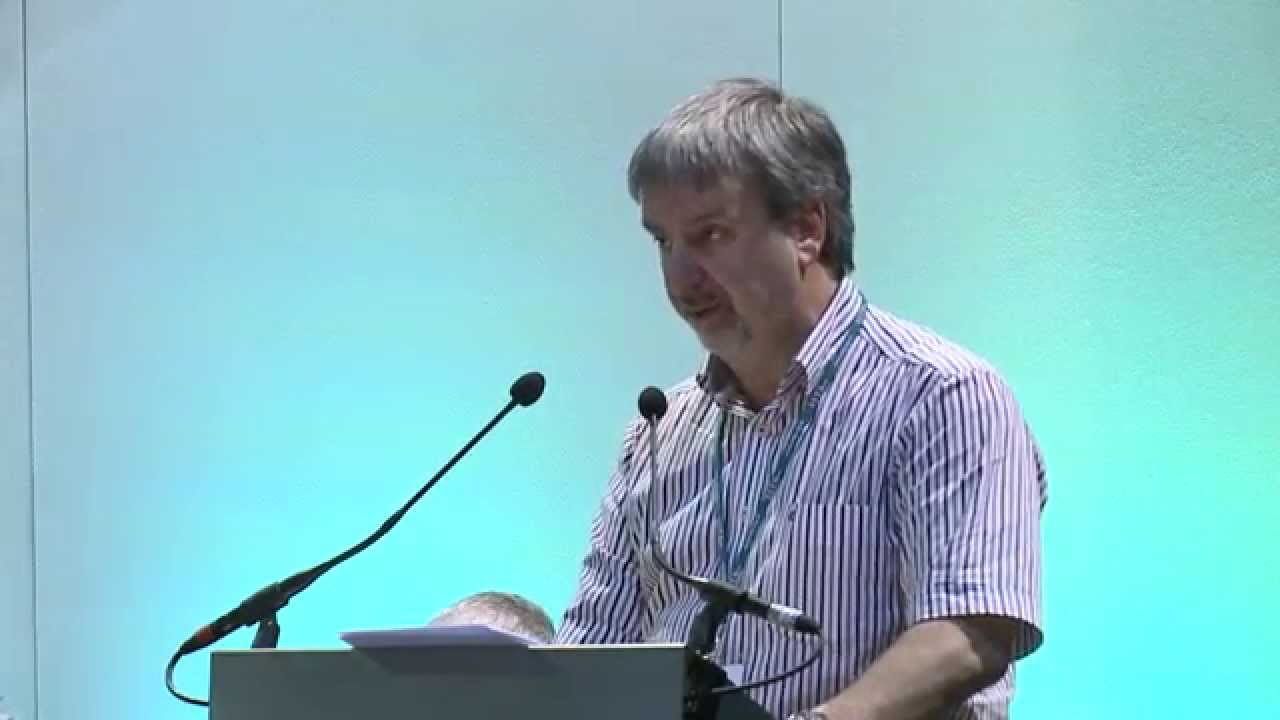
Motion I – Carried
Congress calls on local authorities to remind school leaders that, when preparing School Improvement Plans, each plan should be evaluated and shown to be demonstrably achievable within the school’s Working Time Agreement.
Euan Duncan, Ayrshire
Motion J – Carried
The SSTA acknowledges the principles underpinning the “Named Person’s” role. However in order to protect our most vulnerable children, the SSTA insists that adequate training and preparation time must be provided for those teachers who will be expected to undertake this important role.
Anne O’Kane, ASN Panel
Motion K – Carried
The SSTA recognises the importance of the essential work undertaken specifically by those staff working in the field of Additional Support Needs, and as a consequence instructs the General Secretary to contact the cabinet secretary, GTCS, individual local authority employers and individual independent schools to seek assurances that they too share our recognition of this and that there will be no further reduction in the number of staff who work in this important field.
Peter Donnelly, ASN Panel
Motion L – Carried
In the interest of furthering the inclusive nature of the SSTA, Congress calls on the General Secretary to investigate and then provide a report to Council on the ways in which this Association can widen access to all members, particularly those who have an incapacity or who have responsibilities as carers.
Catherine Nicol, Equalities Panel
Scottish Secondary Teachers’ Association and most other UK teaching unions have written an open letter to the new government setting out our concerns about the potential impact of funding cuts on the education system. The letter, published in the Sunday Times, calls for a commitment to fund the additional costs already facing schools and colleges and protect all education funding regardless of sector, age or location.
The CfE Working Group Tackling Bureaucracy Follow-up Report’ published in March. This report has been produced by the Scottish Government, the employers and Teacher Unions and is intended to tackle the problems teachers face in schools. The report has four sections
FOUR posters have been produced to highlight the sections within the report for school notice boards.
The SSTA believes that this report has the potential to reduce teacher workload and recommends that members use this report to seek reductions in bureaucracy. It is important that this document is included in schools Working Time Agreements negotiations and the intentions of Government are realised. The SSTA believes that teacher’s professional judgement needs to be acknowledged and respected in the process and allow teachers to focus on teaching and learning.
CfE Cutting Bureaucracy Report March 2015 *****IMPORTANT*****
Guidance for schools on
SSTA to issue guidance to be used in Working Time Agreements negotiations.
Materials to be circulated to schools see www.ssta.org.uk
Education Scotland
SQA – New Qualifications
Supply Teachers
Flexible Working
SSTA Salaries Conditions of Service Committee is preparing updated guidance on Working Time Agreements for distribution by the end of April
Absence Management
‘Named Person’ consultation
Scottish Teachers for Enhancing Practice 21 March
SSTA sponsored event with participants appreciative of the association’s involvement
General Teacher’s Council Scotland
Ulster Teachers’ Union Conference 20 March
Association Teachers and Lecturers (ATL) 30 March – 1 April
National Union of Teachers (NUT) 3 – 5 April
Irish National Teachers’ Organisation (INTO) 6 – 7 April
Association of Secondary Teachers’ in Ireland (ASTI) 7 – 9 April
Scottish Trades Union Congress 20 – 22 April
Forthcoming events:
further information can be found on www.ssta.org.uk